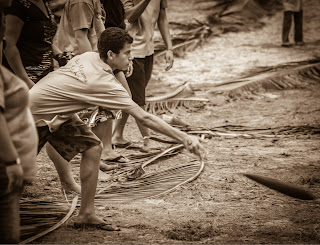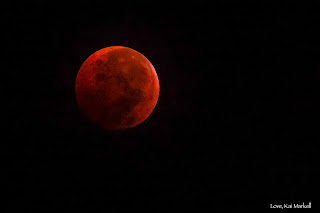Ho'omana'o 'Eha...
I wrote this almost ten-years ago and join in the remembrance of Naue by reposting it and remembering and reflecting...
Na wai e ho`ōla i nā iwi? Who will
save the bones?
I
had heard about the growing conflict on Kaua‘i. In Wainiha, in an area known as
Naue. Our precious and beloved iwi kūpuna again threatened by construction.
This time, by a home on the beach in an area of Hā`‘ena already covered with
vacation homes and rentals. As home by home encroaches upon the beach, our
kūpuna, who lived in coastal communities, and who buried their ‘ohana in their
kulaiwi, again face destruction, desecration, or eviction. Even in death. It
was Mary Kawena Pukui, the noted Hawaiian scholar, who helped to define iwi as
“the most cherished possession” of our Hawaiian people. I often ask myself,
when did that change?
I
received an email with a plea for kokua. Construction crews were scheduled to begin
work in the Naue Cemetery where thirty kūpuna had been identified to date
through archaeological testing. I knew in my na‘au that all my excuses of being
overwhelmed with so many issues on so many islands meant nothing in the
spiritual world. I needed to act. I felt kaumaha from not being on top of this
case earlier. I felt kaumaha from so many burial cases on Kaua‘i which passed
before my very eyes in my previous job. Knowing that I could have always done
more than I did. Knowing the kūpuna expected it. Knowing the kūpuna deserved
it. Putting all my faith in their forgiveness for my shortcomings. Kaua‘i is my
precious kulaiwi. And I couldn't even protect the iwi of my own ‘ohana in
Kalihiwai and Moloa‘a. I knew the system was broken now for many years. And the
emails which came flooding in with the kāhea for Naue only confirmed it yet
again.
When
Trustee Cataluna requested that two OHA staff go to Naue for the June 24, 2008
gathering, and OHA Administration quickly approved it, I knew the kūpuna were
offering me a way to redeem myself. Another Native Rights staffer and I caught
a flight the next morning to Kaua‘i. When we arrived and drove up to Hā‘ena. We
saw police cars, marked and unmarked, and Sheriff vans all driving about and
headed up towards the North Shore. We feared the worst not knowing what had
taken place at Naue earlier that morning.
When
we arrived, law enforcement were scattered all throughout the neighboring
communities in force. Staged away from the scene where only a few officers
paced around at a distance. Kanaka began showing up in the early morning hours.
Ka‘iulani, who had been courageously living at the site for months, Aunty Nani,
Aunty Louise, Brother Hank, Brother Andrew, and so many others converged on the scene and
joined their ‘uhane in honor of our küpuna.
The
sound of oli kāhea, oli komo, the lamenting kanikau, oli Aloha, and pū permeated the air throughout the six hour standoff. He alo ā he alo. Face to
face. Tears flowed. The mix of ‘eha, kaumaha, and Aloha created a strange
stillness in the air. As the numbers of kanaka and hoa aloha increased, so did
the law enforcement. The mix of people their to mālama the kūpuna, as well as
those willing to get arrested, exhibited such a diverse representation of nā po‘e o Hawai‘i. Including mothers with small children. Some nursing babies.
The
police chief arrived on the scene. Negotiations ensued amongst the ongoing
backdrop of voices engaged in protocol. The sounds of the pū. The kane of the
pa lua showed up in greater numbers. So did the law enforcement presence.
Photography and videography ensued all over. The police filmed us. We filmed
them. Others filmed us and them. Bearing witness to the tension and possible
eruption of chaos which was omnipresent.
The
kane of the pa lua entered the burial ground in formation. The police were
invited to enter the burial ground by Ka‘iulani to pay their respects to the
kūpuna. They entered with an oli kahea, pū, and oli komo. It was decided that
the boundaries of the parcel would have to be determined before arrests for
trespassing could be made. An inability to determine the makai boundary from an
expired shoreline survey made the task so difficult that day that it was abandoned.
There were no arrests on this day. The crowds slowly dispersed. The constant
kia‘i present on the beach returned to their tents. We flew back to O‘ahu
emotionally exhausted. Analyzing the events of the day. Wondering if we should
have gotten arrested. Wondering what tomorrow morning would bring or the next
kāhea. Asking Ke Akua and nā kūpuna for forgiveness for not knowing the
answers.
I
returned to Naue last Friday, July 11th, when the kāhea went out
again. This time the dust fence was erected around the entire parcel and the
sounds of a backhoe digging in the cemetery was heard. We tried to bear witness
to the destruction. We spoke to our kūpuna on the other side of the black
curtain so they knew why we were there. Also to remind ourselves why we were
there. And as the kaumaha of the day settled in on the worksite, some of the
workers rushed out to the beach in a confrontation. The police were summoned by
both sides. No arrests were made but investigations initiated. Some things were
said by some kanaka in the heated exchanges which brought forth the dark cursing
power of our ‘ōlelo. It made me sad. I think it made our kūpuna sad too.
Several
kānaka were part of the construction crew. I knew their ‘eha was eating them
inside by their faces. Young men. They said they had to feed their ‘ohana. I
understand the capitalistic system which tears our ‘ohana apart. I have seen
the ‘ohana fight each other for little pieces of ‘āina. The almighty dollar. I
understand all too well e nā poki‘i.
I
told these young kānaka workers that I love them. He alo ā he alo. Face-to-face. But I love
my kūpuna too. And I don’t want anyone to get hurt on this project. So while we
desperately work on legal intervention and a temporary restraining order, I
know the work continues. We all make our choices in this life. And my heart and
na`au hurt like Ka‘iulani. Aunty Nani. Aunty Louise. Brother Hank. Like so many
others.
-->
So
I asked Ke Akua and our kūpuna to watch out for the kānaka on the job site.
Because our beloved Queen taught us about love and forgiveness. About pono. And
we just want to protect our precious kūpuna. Because we love them. They are all
we have left to guide us into an uncertain future. Our most cherished
possessions. And if I can not find it in my heart to forgive another kanaka. In
the presence of my loving and forgiving kūpuna. Not only have I lost them. I
truly have lost everything. Everything…



Comments